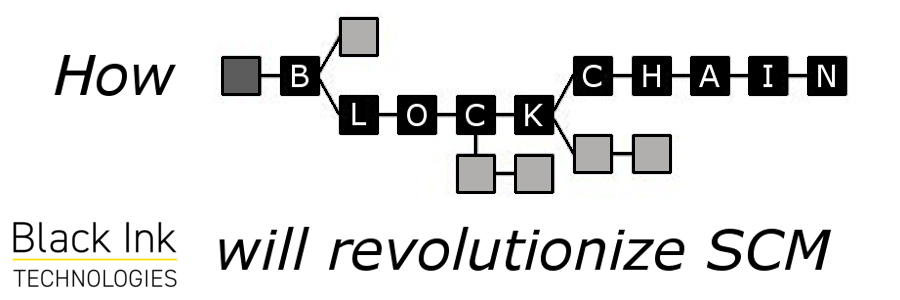Blockchain Will Give Supply Chain Reporting More Transparency, Visibility, And Security
by Black Ink Team

Blockchain is not only good at keeping track of digital currencies – it can be used to keep track of physical objects, too. Released by an anonymous person or group (who goes by the alias Satashi Nakamoto) back in 2008, this technology offers a way of decentralizing ledgers and making them less susceptible to fraud. Manufacturers are already using it to make their supply chain reporting safer, more efficient and less prone to errors.
The way it works is difficult to describe, but we go: a large network of computers cooperates in building a ‘chain’ – a chronological sequence of events such as ‘this package left the factory’ or ‘this package was delivered’ – which gets checked over and over on a continual basis by every computer in the network. Verifying a piece of information, such as which packages have not arrived yet, is simply a matter of looking at the chain and making a judgement based on the sequence of events stored therein. The advantage of having data stored in and analyzed by many computers at once instead of only one is simple to understand; without one central database that houses all your data, nothing can get lost and nothing can be maliciously altered without the entire network knowing about it. Another advantage is that, with many machines ‘pinging’ all at once, or sending out packages of information, the data can be accessed more quickly.

Obviously, for manufacturers to take advantage of this technology they will have to find large networks of computers to act as their blockchain-checkers, or ‘miners.’ But this will not be difficult, since blockchain programs can easily be run on most run-of-the-mill business computers. Furthermore, they will be able to reduce this problem by providing their vendors with incentives to join their computers to the network. One incentive would be provided with no extra step involved: being a part of a blockchain network is more often than not the fastest way to gain information about whatever it is the particular blockchain represents, since the machine you view the data with is itself taking part in computing/housing the data.
Making their supply chain data more reliable, more nimble and easier to access by implementing blockchain technology will have far-ranging effects for manufacturers. Salespeople will be able to provide their customers with more accurate delivery date estimates, meaning they will log more better interactions in CRM, and operations departments will have a better grasp over where the company’s assets are.
There’s an old saying that goes “teamwork makes the dream work.” As far as supply chain reporting goes, that old saying certainly holds true.
